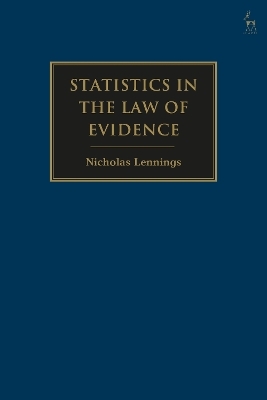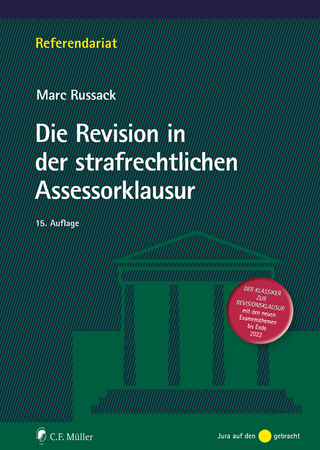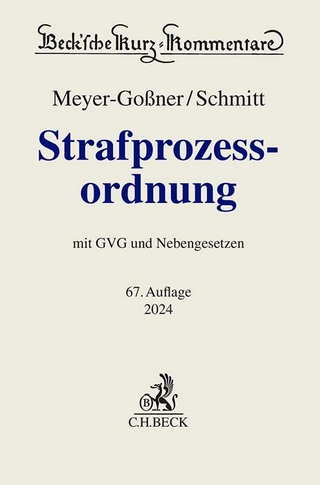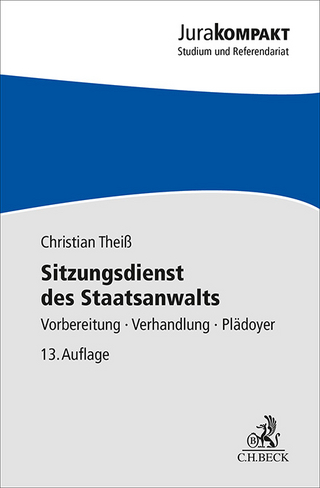
Statistics in the Law of Evidence
Seiten
2024
Hart Publishing (Verlag)
978-1-5099-5733-0 (ISBN)
Hart Publishing (Verlag)
978-1-5099-5733-0 (ISBN)
This book evaluates the role played by statistical evidence in litigation. Despite the increasing prevalence of statistical evidence in modern litigation, how such evidence should be admitted and used by courts is often inconsistent and widely criticised. Accepting that statistical evidence can lead to more accurate decisions, the book proposes criteria that could allow courts to decide that statistical evidence is good for fact-finding.
The many and varied scholarly debates regarding statistical evidence have by and large avoided judicial attention. Unlike previous works, this book contextualises those debates in the language and practice of evidence law, focusing principally on Australia, as well as the UK and the USA.
It does so by identifying that the controversy around statistical evidence follows the three-tiered statistical syllogism underlying statistical inference: first, whether statistical evidence is capable of establishing an association between phenomena in a state of nature; second, inferring that phenomena to an individual from the general association; and third, whether statistical evidence can be sufficient for proof of contested facts. Objections are said to arise at each level of this syllogism and, by mapping these objections onto evidence law, the book argues that a pathway for the judicial evaluation of statistical evidence can be constructed.
The many and varied scholarly debates regarding statistical evidence have by and large avoided judicial attention. Unlike previous works, this book contextualises those debates in the language and practice of evidence law, focusing principally on Australia, as well as the UK and the USA.
It does so by identifying that the controversy around statistical evidence follows the three-tiered statistical syllogism underlying statistical inference: first, whether statistical evidence is capable of establishing an association between phenomena in a state of nature; second, inferring that phenomena to an individual from the general association; and third, whether statistical evidence can be sufficient for proof of contested facts. Objections are said to arise at each level of this syllogism and, by mapping these objections onto evidence law, the book argues that a pathway for the judicial evaluation of statistical evidence can be constructed.
Nicholas Lennings is a barrister at 12 Wentworth Selborne Chambers and an Adjunct Senior Lecturer at the University of Sydney, Australia.
Foreword, Justice Jonathan Beach
Introduction
1. Statistics in Adjudicative Fact-finding
2. Admitting Evidence of General Factual Causation
3. Statistical Proof of General Factual Causation
4. Individualising Inferences from Statistical Evidence
5. Statistics and Similar Facts
6. Prejudicial Statistical Evidence
7. Objective Probabilities and Naked Statistical Evidence
8. Statistical Analysis of Evidence
Conclusion
| Erscheinungsdatum | 29.10.2024 |
|---|---|
| Verlagsort | Oxford |
| Sprache | englisch |
| Maße | 156 x 234 mm |
| Themenwelt | Recht / Steuern ► Allgemeines / Lexika |
| Recht / Steuern ► EU / Internationales Recht | |
| Recht / Steuern ► Strafrecht ► Strafverfahrensrecht | |
| ISBN-10 | 1-5099-5733-2 / 1509957332 |
| ISBN-13 | 978-1-5099-5733-0 / 9781509957330 |
| Zustand | Neuware |
| Informationen gemäß Produktsicherheitsverordnung (GPSR) | |
| Haben Sie eine Frage zum Produkt? |
Mehr entdecken
aus dem Bereich
aus dem Bereich
Buch | Softcover (2023)
C.F. Müller (Verlag)
24,00 €
Gerichtsverfassungsgesetz, Nebengesetze und ergänzende Bestimmungen
Buch | Hardcover (2024)
C.H.Beck (Verlag)
115,00 €
Vorbereitung, Verhandlung, Plädoyer
Buch | Softcover (2024)
C.H.Beck (Verlag)
14,90 €


